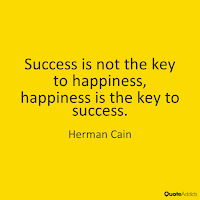Three quarters of 2018 is now behind us, so I decided to look back and review where and how my time has been spent so far, looking back from what I last set out to do in January this year, where I reviewed my 2017 time tracking in this post. I wasn't doing a good job this year in reviewing my personal life/work goals, the months flew by - time to re-calibrate.
Changes to my Personal RAGE model
In March 2018, I revisited my personas, see below. The main change to the model was leaving my own consulting company AS3 behind, as I took on a job as a permanent employee. I also decided to focus my values more on family, putting my own individual personal aspirations somewhat at a lower priority. The matrix looked like this:
Reviewing Personal Goals from January
Earlier this year, I noted down the following. Without looking at the data insights, the comments reflected in italics:
- Find a way to reduce work hours to a point that it is actually sustainable, and not be the only thing that consumes me (even if I'm having a good time at work). Goal is to maintain a consistent level of 168 hours maximum per month on work. Need to do this by building an awesome management team, foster leadership & responsibility downstream. Implement behaviours from "Turn this Ship Around". Goal not met, my work hours are still quite high.
- Create space for Personal endeavours, focusing on leisure activities as well as health & fitness.
- My 3D printing experiments seized in 2017. Start again. Not started
- Cycling virtually non-existent in 2017. Start again. Only starting now, Sept!
- I have a boxed Lego Robotics Mindstorm set waiting for me (gifted this toy for my birthday) Still boxed!
- Five programming books to read and new languages to code - waiting for a year, unopened. Where are these books anyway, out-of-sight, out-of-mind??
- Read 24 books this year. In 2017 I completed just 9 books of the 38 I'd planned to read! Going okay, 65% there
- Create the software for my RAGE tracking tool. I wish!
- Continue to nurture the family time to be as memorable & enjoyable as possible. Looking good!
What's the data showing?
Sometimes the big picture is not always a good thing. When summarising the last 8 months, it seems my Life/Work balance seems pretty normal - good percentage of split between Life/Work, where:
Life >> Work, so all must be good right??
But something feels off...
Why does it feel like I'm spending way too much time doing work? Roughly speaking, employees average monthly hours in South Africa should be around 168 hours per month. So what do my work hours look like?
So it seems my work hours are exceeding normal expected hours - although, now that I'm at executive level, it is expected to put in the extra hours, so I'm still trying to come to terms with this and really need to figure out how to still deliver on the expectations and keep the hours to my own personal target of maximum 168 hours - so with 4 months remaining, I really got to solve this puzzle somehow. When I look back at these numbers, sometimes I can't help but feel I would've been better off financially if I was still consulting and billing-by-the-hour :-)
So what if I'm working way too many hours - as long as my work keeps me happy right?? That I should be having fun, and enjoying it right?? Good thing I'm still keeping track of my daily feelings journal for work - let's see if my overall happiness sentiment is still in check??
Am I enjoying the Work? ...Yes, it seems so!
Looking at my sentiment tracking data, it does seem pretty green, not much red - so that should be a good thing. Although a cause for concern is that recently, the enjoyment in terms of positive feelings is being overtaken by more of an indifferent/neutral sentiment, that is, I can neither say I'm having a really terrible time, nor can I say I'm having an absolutely awesome time either. This could be due to a few factors: organisational transformation, people challenges and pressures of strategy changes & new delivery challenges hitting all areas of the company - my personal challenge is never to fall into complacency or mediocrity. I'm also challenged with personal leave days, so back when I was consulting, I took some personal time pretty regularly - but from April this year, these personal leave days have drastically reduced compared to previous years. I'm becoming increasingly mindful of this, to the point of potentially taking some unpaid leave...
Overall Breakdown of Time per Area of Life
It's not all bad - given that I did prioritise my Family-First value ahead of my own Individual needs, the areas are mostly green. However, I do need to move invest more on the personal Health & Fitness areas, and have to think really hard about investing more time and energy into the idea of breaking out as an Entrepreneur. I've got ideas building up on my backlog, with absolutely zero time invested in taking them anywhere...On my individual need for improving my spirituality, 2018 has been a very good year...On the family-side, it is still quite the challenge to dedicate real one on one time with my individual family members, I've got more work to do with 1:1 time with my wife, outside of the family time we spend together with the kids...and I got to get back to more writing time for my blog, although some close friends say I should spend less time blogging about my time tracking and instead use it for 1:1 time with my wife!




















